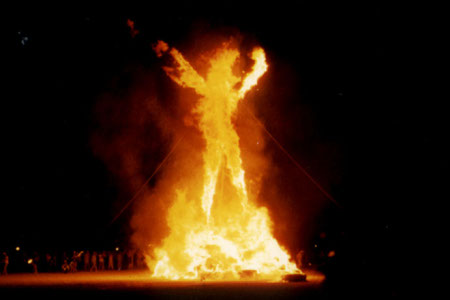No definition is perfectly concise. We associate words with images and pretend that we all agree on their meaning, but we are occasionally reminded that we don’t always agree. I remember, as a child, being surprised to hear that school buses are yellow, having been of the opinion that school buses are orange.
“Fire” is a particularly difficult word to corner. It is generally associated with the chemical process of rapid combustion, a chain reaction of oxidation reactions in a gas. This “fire” occurs in hearths, automobile engines, forests, and volcanoes.
I think we can safely agree that all such rapid oxidation events can be called “fire,” but one other phenomenon is very fire-like, though it has nothing to do with oxidation. It is the fire that we see burning on the sun. It is sometimes called stellar fire, stellar combustion, or astrophysical combustion. I’ve heard educated people say “the sun isn’t really a fire,” because they identify the word with chemical combustion, but the word is much older than combustion theory, which was first presented in 1777, a year after the American Declaration of Independence.
What is combustion? According to modern chemistry, it’s an electron transfer, but it’s called “combustion” because of its macroscopic character as an exothermic chain reaction. The word was not chosen because of any association with electron transfer, but because of its association with the phenomenon we have called fire since the Greeks called it “pyr”. The Latin root of combustion is a word that means “burning.”
What about fire leads us to call it fire? What are its characteristics—its phenomenology?
To understand the phenomenology of combustion, it helps to bear in mind that flames only occur in the presence of a gas, and that gas will not ignite without adequate heat. What is a hot gas? At the molecular level, a hot gas is just a cloud of accelerated molecules. It is the kinetic energy of free molecules colliding with each other that makes combustion possible. Molecules are broken apart in the melee, and the fragments recombine to form new molecules, often generating free electrons that will start further combustion reactions. The result of this chain reaction is a burning gas that we call “fire” and chemists call “rapid combustion.”
But how different is this chain reaction from what goes on in the sun? Sure, we know that the solar fire is driven by fusion reactions rather than molecular bonding, but that aside, we still have a chain reaction in a dense “cloud” of high energy objects breaking apart, forming new objects, and releasing light and heat. In both cases, we have a bright, circulating mass of convection, conduction, and radiation. Both phenomena are self-sustaining and self-replicating, so long as fuel is available. Given that the word “fire” predates our discovery of either molecular combustion or atomic fusion, it seems hasty to attach it to the former while keeping it at a safe distance from the latter.
Now that we can recognize the kinship of these exothermic, self-sustaining, self-replicating chain reactions as species of fire, we might consider what other processes can be recognized with similar characteristics. One obvious example occurs to me: life.
In what ways is life like a fire?
